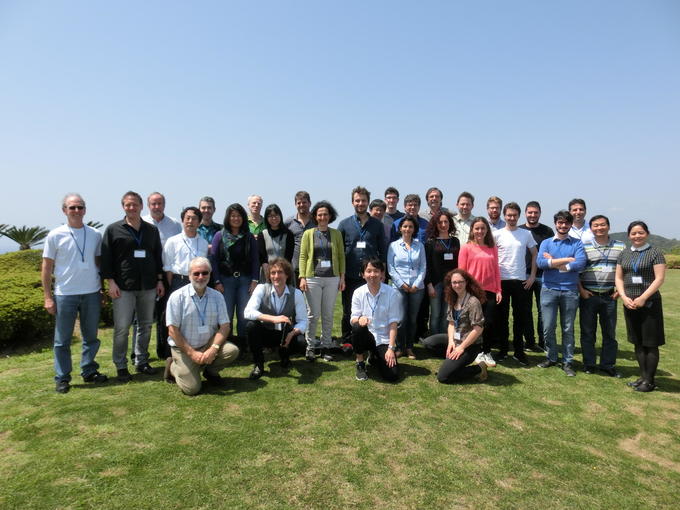NO.077 Controlled Adaptation of Self-adaptive Systems (CASaS)
April 25 - 28, 2016 (Check-in: April 24, 2016 )
Organizers
- Paola Inverardi
- University of L’Aquila, Italy
- Nicolás D’ Ippolito
- Universidad de Buenos Aires, Argentina
- Kenji Tei
- National Institute of Informatics, Japan

Overview
Description of the meeting
Self-adaptive systems are required to adapt its behavior in the face of changes in their environment and goals. Such a requirement is achieved by developing self-adaptive systems as closed-loop systems following a Monitor Analyse Plan Act (MAPE) scheme. MAPE loops are a mechanism that allows systems to monitor their state and produce changes aiming to guarantee that the goals are met. In order to achieve the desired goals, self-adaptive systems must combine a number of MAPE loops with several responsibilities and abstraction
levels.
Higher-level goals require decision-level mechanisms to produce a plan in terms of the actions to be performed. Several mechanisms can be adopted for automatically generating decision‐level plans (e.g. event-based controller synthesis) providing guarantees on the satisfaction of hard goals, and improvements on soft goals.
Lower-level goals, on the other hand, require control mechanisms that sense the state of the environment and react to it thousands of times per second. Standard solutions to this problem are based on classical control theory techniques such as discrete-time control.
Indeed, system’s requirements cannot be achieved by isolated MAPE loops, on the contrary, a combination of coordinated low‐level and decision-level MAPE loops must be considered. Hence, multiple layers of control combining low latency discrete-time controllers with decision-level event-based controllers are a sensible approach to guarantee satisfaction of sophisticated goals in self-adaptive systems.
However, self-adaptive systems community has neglected the use of control theory as a central tool to guarantee hard goals while aiming to better satisfy soft goals. Very recently, software engineering community has started to study the application of control theory and the formal guarantees it provides in the context of software engineering. Proof of this is the Dagstuhl seminar “Control Theory meets Software Engineering” that has been held in 2014. The seminar covered diverse possible applications of control theory in software engineering. The Shonan meeting we propose, on the other hand, focuses more on formal guarantees that can be provided in self ‐adaptive system via the use of the broad area of control theory (e.g. event‐based controller synthesis, discrete‐time control).
In this meeting, we plan to involve a group of very active researchers in key areas such as Self-Adaptive Systems, Control theory, Game theory, Software Engineering, and Requirements Engineering, setting an adequate environment to discuss current and future applications and possibilities of control theory as a mechanism to provide formal guarantees on self-adaptive systems (e.g. convergence, safety, stability). We expect that having a number of participants from a wide variety of research areas will bring to light the benefits of incorporating the application capabilities and formal framework provided by control theory to self‐adaptive systems.
“Engineering Adaptive Software Systems” (EASSy) Shonan meeting is also topic-wise closely related to our meeting. Indeed, the EASSy meeting is also related to self- adaptive systems, but it covers a broader range of topics. Unlike the EASSy, our meeting focuses on the central role of control theory in providing different level of assurance to self-adaptive systems. In this context, we plan to explore the possibilities of interdisciplinary collaboration between control theory, self‐adaptive systems and requirements engineering experts. In order to take most of the meeting and facilitate deeper discussions, we plan to have a good mix of participants coming from these research areas.
We envisage the meeting to be organized in two main parts. First, a “stating common
grounds” part where participants will give a talk stating their perspectives on their fields and
key aspects where they visualize relations between their research area and other participants’ fields. Then, a second part “discussions and work” where the most relevant topics selected by the participants will be discussed in work groups. Finally we plan to summarize the workshop findings and propose future actions.
We expect the meeting to encourage participants from different areas and communities to interact and actively search for common interests that may result in possible collaborations and joint work.
